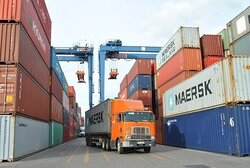
Technical, engineering services export, a privilege to boost foreign trade

Taking this huge potential into consideration, boosting such exports would be an advantage for expanding the country’ foreign trade specially with the neighbors.
Some Iranian companies including Mapna Group have already had fruitful presence in completion of infrastructure projects in several countries including Iraq and Oman and if such contribution will be expanded it will be a good source of export revenues while job creation.
Syria is also an important destination for the export of Iranian technical and engineering services as the country needs reconstruction. It is a proper opportunity for the presence of Iranian companies especially private sector contractors.
Hassan Danaeifar, the chairman of the headquarters for expanding economic ties with Iraq and Syria, says: “We can cooperate in all economic, commercial and industrial fields with the Syrians and exports of technical and engineering services to that country is a good area for cooperation. Iranian companies can transfer their experience to Syrians for reconstructing their industries and agriculture sector in a proper ground for activity.”
As the electricity sector accounts for the lion’s share of Iran’s technical and engineering exports, and also given that Iranian companies’ presence in water projects of other countries (construction of dams, water and wastewater treatment plants, and water transferring pipelines) is rising, Energy Ministry of Iran is seriously following up the objective of boosting technical and engineering services exports from electricity and water sectors.
Of the water and electricity projects under implementation by an Iranian company in a foreign country it could be referred to the project for building a dam, a water transferring tunnel and a 120-MW power plant in Sri Lanka which is already 94 percent complete.
Another project, which worth $12 million, is building high-voltage substations in Nigeria.
Iran is also planning to become an exporter of technical and engineering services in gas sector and negotiations are underway with some neighboring countries to export such services to them.
While export of technical and engineering services is an economic advantage for the country, it faces some serous barriers.
Farzin Mahdyar, a member of Association of Iranian Exporters of Technical and Engineering Services, says that Iran is conducting technical and engineering projects in different regions including CIS countries and Iraq, but due to some barriers mainly related to the international limitations which make issuance of guarantees impossible for the both sides, the Iranian operators of those projects will have no choice rather than leaving those countries.
While removing barriers in the way of exporting such services is necessary, some facilities and incentives should be also offered to related projects outside the country.
Highlighting that Iran has the potential of exporting $25 billion of technical and engineering services per year, Bahman Salehi, the secretary general of Association of Iranian Exporters of Technical and Engineering Services, is emphasizing that all hurdles should be removed, given that such exports can be an important source of income for the country.


Trump weighs using $2 billion in CHIPS Act funding for critical minerals

Codelco cuts 2025 copper forecast after El Teniente mine collapse

Electra converts debt, launches $30M raise to jumpstart stalled cobalt refinery

Barrick’s Reko Diq in line for $410M ADB backing

Abcourt readies Sleeping Giant mill to pour first gold since 2014

Nevada army depot to serve as base for first US strategic minerals stockpile

SQM boosts lithium supply plans as prices flick higher

Viridis unveils 200Mt initial reserve for Brazil rare earth project

Tailings could meet much of US critical mineral demand – study

Kyrgyzstan kicks off underground gold mining at Kumtor

Kyrgyzstan kicks off underground gold mining at Kumtor

KoBold Metals granted lithium exploration rights in Congo

Freeport Indonesia to wrap up Gresik plant repairs by early September

Energy Fuels soars on Vulcan Elements partnership

Northern Dynasty sticks to proposal in battle to lift Pebble mine veto

Giustra-backed mining firm teams up with informal miners in Colombia

Critical Metals signs agreement to supply rare earth to US government-funded facility

China extends rare earth controls to imported material

Galan Lithium proceeds with $13M financing for Argentina project

Kyrgyzstan kicks off underground gold mining at Kumtor

Freeport Indonesia to wrap up Gresik plant repairs by early September

Energy Fuels soars on Vulcan Elements partnership

Northern Dynasty sticks to proposal in battle to lift Pebble mine veto

Giustra-backed mining firm teams up with informal miners in Colombia

Critical Metals signs agreement to supply rare earth to US government-funded facility

China extends rare earth controls to imported material

Galan Lithium proceeds with $13M financing for Argentina project

Silver price touches $39 as market weighs rate cut outlook


















